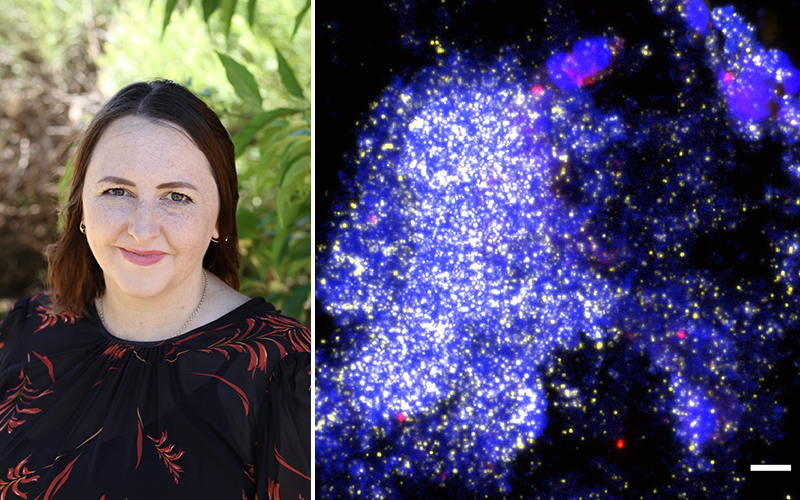Search
Research
A near-complete genome of the uncultured Staphylococcus aureus phage COMBAT-CF_PAR1 isolated from the lungs of an infant with cystic fibrosisIn cystic fibrosis, bacteria–bacteriophage interaction in the lower airways is poorly understood. We present the near-complete genome of the uncultured Siphovirus-like bacteriophage, Staphylococcus aureus phage COMBAT-CF_PAR1, isolated from the lower airways. The genome spans 41,510 bp with 33.45% guanine–cytosine content and contains 65 open reading frames.
Research
Comparison of "IN-REC-SUR-E" and LISA in preterm neonates with respiratory distress syndrome: a randomized controlled trial (IN-REC-LISA trial)Surfactant is a well-established therapy for preterm neonates affected by respiratory distress syndrome (RDS). The goals of different methods of surfactant administration are to reduce the duration of mechanical ventilation and the severity of bronchopulmonary dysplasia (BPD); however, the optimal administration method remains unknown.
Research
Signal-correction errors in the EasyOne Pro LAB multiple-breath washout device significantly impact outcomes in children and adultsMultiple-breath washout (MBW) is an established technique to assess functional residual capacity (FRC) and ventilation inhomogeneity in the lung. Indirect calculation of nitrogen concentration requires accurate measurement of gas concentrations.
Research
Prenatal Origins of Obstructive Airway Disease: Starting on the Wrong Trajectory?From the results of well-performed population health studies, we now have excellent data demonstrating that deficits in adult lung function may be present early in life, possibly as a result of developmental disorders, incurring a lifelong risk of obstructive airway diseases such as asthma and chronic obstructive pulmonary disease.
Research
Mapping Lung Hematopoietic Progenitors: Developmental Kinetics and Response to Influenza A InfectionThe bone marrow is a specialised niche responsible for the maintenance of hematopoietic stem and progenitor cells during homeostasis and inflammation. Recent studies however have extended this essential role to the extramedullary and extravascular lung microenvironment. Here, we provide further evidence for a reservoir of hematopoietic stem and progenitor cells within the lung from embryonic day 18.5 until adulthood.
Research
Determinants of lung function development from birth to age 5 years: an interrupted time series analysis of a South African birth cohortEarly life is a key period that determines long-term health. Lung development in childhood predicts lung function attained in adulthood and morbidity and mortality across the life course. We aimed to assess the effect of early-life lower respiratory tract infection (LRTI) and associated risk factors on lung development from birth to school age in a South African birth cohort.

News & Events
Bacterial slime causing persistent wet coughs for childrenResearchers using powerful microscopes have identified bacterial slime in the lungs of some children with persistent wet coughs.
Research
Prematurity-associated lung disease: is it asthma?Shannon Elizabeth Simpson Smith BMedSci (hons), PhD PhD, MSc, BSc Head, Strong Beginnings Research, Co-head Foundations of Lung Disease Program
Research
Can lung disease be averted by focusing on early-life inequities?Shannon Simpson BMedSci (hons), PhD Head, Strong Beginnings Research, Co-head Foundations of Lung Disease 08 6319 1631 Shannon.simpson@thekids.org.au
Research
The effect of moderate-to-late preterm birth on lung function over the first 5 years of life in a South African birth cohortPreterm birth is associated with increased mortality and morbidity, particularly due to lung disease. Low- and middle-income countries (LMIC) have the highest rates of preterm birth. Infants born extremely preterm rarely survive, so the largest burden is amongst moderate-to-late preterm (MLP) infants. The long-term health impact on MLP children in LMIC is poorly understood. The aim of this study was to assess the effect of MLP birth on lung function trajectories from birth to 5 years in the Drakenstein Child Health Study.
